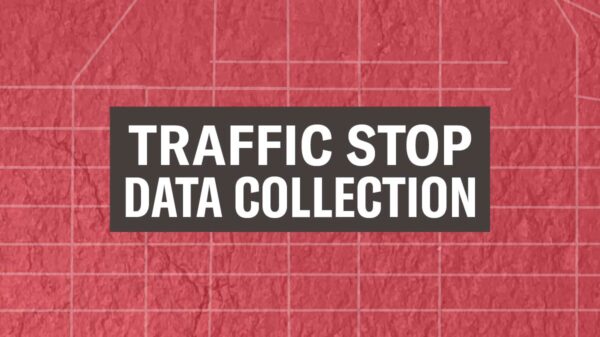Motorists of color on Illinois streets and highways continue to be stopped at rates higher than that of white drivers according to data collected and reported by police across the state. In 2021, Black drivers were approximately 1.7 times more likely to be stopped by police than white drivers. While Latinx drivers did not see a statewide disparity, they are more likely to be stopped in many jurisdictions.
Racial inequities in traffic stops have persisted statewide and in many jurisdictions for years. Black and Latinx drivers are often pulled over for low-level violations, whether it is changing lanes without signaling or having a broken taillight—offenses for which white drivers who violate the same laws are often not stopped.
The data for traffic stops in 2021 is contained in a recent report released by the Illinois Department of Transportation earlier this summer, as mandated by the Illinois Traffic and Pedestrian Stop Statistical Study Act (“the Act”). The Act requires all law enforcement officers in Illinois to record and report data about every motorist they stop, including the race of the motorist, the reason for the stop and the outcome of the stop. The Act was originally sponsored by then-State Senator Barack Obama and made permanent in recent years.
The Act was designed to provide law enforcement leadership across the state with a tool for addressing potential racial bias in traffic enforcement. In highlighting the data today, the ACLU of Illinois again calls on law enforcement leadership to review and focus on the data to seek improvement.
“Black drivers from across the state have raised concerns for years that police are more likely to stop them than white drivers – that remains true based on this data,” said Joshua Levin, staff attorney for the ACLU of Illinois. “This is not anecdotal or selective – this reality is based on data that police report themselves about traffic stops in their communities. And that data consistently shows that Black drivers are more likely to be stopped than white drivers. ”
The report makes clear that no single community is responsible for this disparity and some communities have improved in recent years. Still, some communities have a rate of racial disparities far worse than the statewide rate.
A number of communities across Illinois showed disparities:
Chicago: Black drivers were more than 5 times more likely to be stopped than white drivers; Latinx drivers were nearly 2.5 times more likely to be stopped;
Aurora: Black drivers were 7 times more likely to be stopped by police; Latinx drivers were nearly 4 times more likely;
Bloomington: Black drivers were 4.7 times more likely to be stopped by police; Latinx drivers were twice as likely;
Peoria: Black drivers were 6.8 times more likely to be stopped by police; Latinx drivers were 2.3 times more likely;
Springfield: Black drivers were 5 times more likely to be stopped by police, even though Latinx drivers were stopped consistent with their driving population in the community
“Black people who have lived in Springfield for any amount of time have noticed that Blacks were more likely to be stopped while driving compared to white drivers,” added Ken Page, a Black driver and President of the ACLU of Illinois Chapter in Springfield. “This data shows that we have more to do as a community to make everyone feel like policing is fair and even-handed. We will be calling on our elected officials and law enforcement leaders to address this situation.”
The data also shows that Black drivers were more likely to be asked for consent to search their car by police once a stop has been made. Black drivers statewide were more than 40% more likely to be asked for permission for such a search. In Chicago, Black drivers were more than 5 times more likely to be asked to allow police to conduct a consent search. Yet the data shows that Chicago police were more likely to find contraband in the automobile of a white motorist.
The ACLU’s Levin added: “Because Black and Latinx drivers are more likely to be stopped by police, they are more likely to experience invasive questioning, searches, humiliation, and, all too often, tragic violence at the hands of police. This is why we renew our call on police departments across Illinois to review and use this data to address these longstanding disparities. The Illinois legislature intended this data to be a tool for reform and improvement. Every police agency in Illinois should explain how it will change its policies to solve these stubborn racial inequalities.”
Stay Informed
Sign up to be the first to hear about how to take action.
By completing this form, I agree to receive occasional emails per the terms of the ACLU’s privacy statement.
By completing this form, I agree to receive occasional emails per the terms of the ACLU’s privacy statement.

